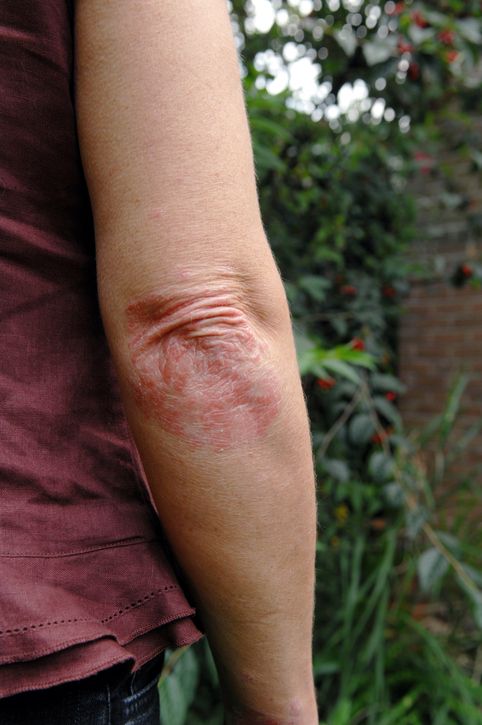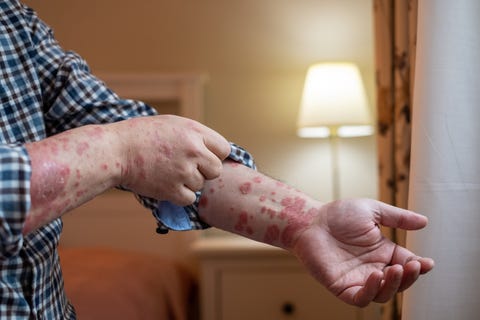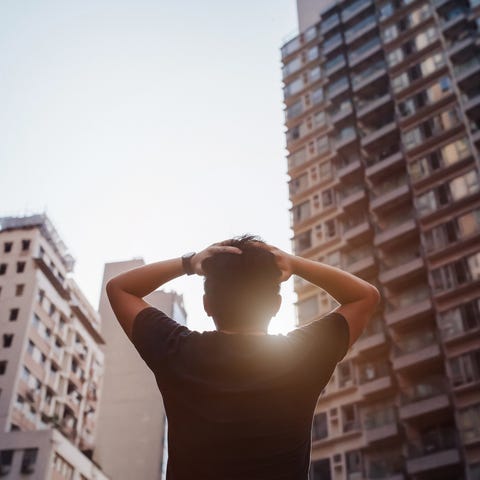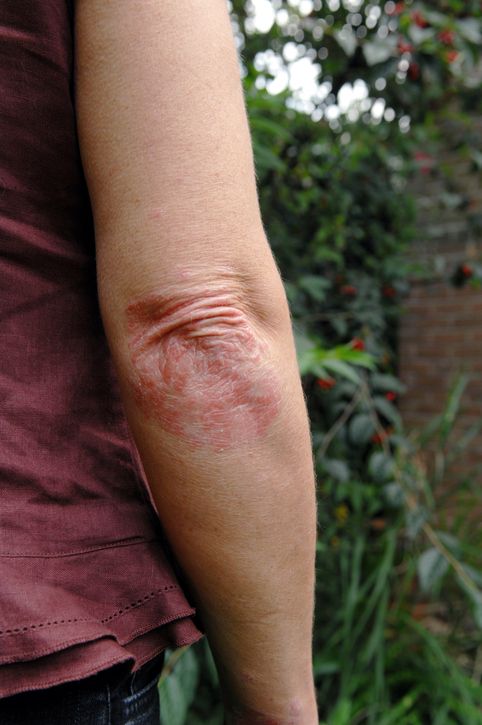

200mmGetty Images
If you have psoriasis, you know just how frustrating the condition can be. The telltale plaques—thick, reddish patches of skin with silvery scales—can pop up at a moment’s notice and stick around for months. For the 7.5 million Americans who suffer from the chronic inflammatory disease, an overactive immune system speeds up skin cell growth, leading to patches of skin that itch or feel sore.
Your genes may put you at risk for psoriasis, but environmental factors including lifestyle moves can make symptoms worse. Here are six habits you’ll want to break for the sake of your skin.
Habit #1: Showering now and then
If lockdown relaxed your grooming habits—say, you’re skipping showers or sitting around in sweaty gear after a ride—it’s key to get back on track. “Regular showers help to soften the plaques and eliminate excess dead skin,” says Marisa Garshick, M.D., clinical assistant professor of dermatology at Cornell New York-Presbyterian Medical Center. It’s especially important to rinse off post-workout. “Sweat contains salt, which can be drying and irritating to existing plaques.”
To minimize irritation, opt for lukewarm showers over hot, and avoid abrasive scrubs. Apply moisturizer immediately after bathing to re-hydrate and protect skin. Dr. Garshick likes formulas containing salicylic acid, lactic acid, or urea, which act as keratolytic agents to help reduce the thickness of plaques. “They allow topical treatments to penetrate more easily,” she explains.
While thicker creams and ointments may be more effective than lighter lotions at combating itchy, flaky skin, it’s all about preference, she says. “Ultimately, it comes down to finding a product that you like and will actually use.”
Habit #2: Shunning the sun

ZenShui/Eric AudrasGetty Images
When it comes to curbing psoriasis flares, it seems a little sun is better than none. “UV exposure has a naturally immunosuppressive effect,” says Garshick. In fact, it’s so powerful in easing symptoms that dermatologists often prescribe phototherapy treatments, in which artificial UVB rays are emitted through a light box or hand-held excimer laser.
If you opt to catch some rays outside of a controlled setting, check with your physician first. “Certain topical and systemic medications may increase photosensitivity,” she says. Then practice safe sun behavior, applying adequate sun protection to areas that aren’t affected by psoriasis, and limiting your exposure to 10 minutes. Don’t overdo it, Garshick warns. A sunburn ups the risk of skin cancers, and for some patients, causes the development or worsening of psoriatic lesions.
Habit #3: Eating a high-sugar diet
Scientists have long known that obesity and psoriasis go hand-in-hand. But even if your BMI is in a healthy range, the foods you’re consuming may not be helping. Even a short-term spurt of eating a diet high in saturated fat and simple sugars can trigger psoriasis-like inflammation in the body, suggests a 2020 study in the Journal of Investigative Dermatology. While there’s no definitive psoriasis food plan, many sufferers find relief from a balanced diet filled with anti-inflammatory foods—think salmon, broccoli, berries, and avocado.
Habit #4: Stressing out

Yiu Yu HoiGetty Images
Traffic jams and 12-hour WFH days don’t just harm your mood—they mess with your skin too. “There’s a clear mind-body connection,” says Dr. Garshick. “Some people find that their psoriasis causes them stress, while others notice it flares up during times of stress.”
You know the drill when it comes to stress relief. Get plenty of sleep and exercise, and consider adding some meditation or yoga to your daily routine. Finally, block in time every day to do something you love, whether it’s running or noodling around with your guitar. It might mean saying no to a commitment, but tending to your needs is one of the best ways to get tension under control and keep it from showing up on your skin.
Habit #5: Lighting up
Aside from all the obvious reasons it’s unhealthy, smoking ups your psoriasis odds and may make flare-ups more severe. A study in the American Journal of Epidemiology revealed long-term smokers had nearly double the risk of developing psoriasis as nonsmokers.
The chemicals in regular and e-cigarettes constrict blood flow, which puts the body into a state of stress that can inflame skin. Nicotine also harms the immune system, causing skin cells to pile up too quickly. Bottom line: It’s as bad for your skin as it is for the rest of you.
This content is created and maintained by a third party, and imported onto this page to help users provide their email addresses. You may be able to find more information about this and similar content at piano.io
Advertisement – Continue Reading Below
